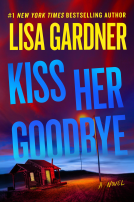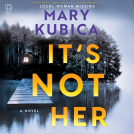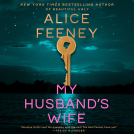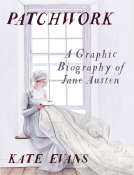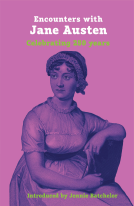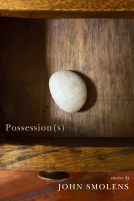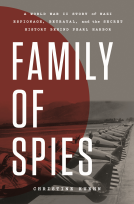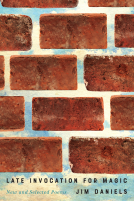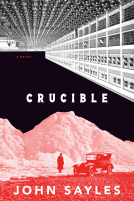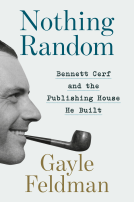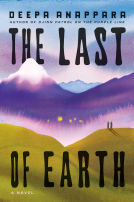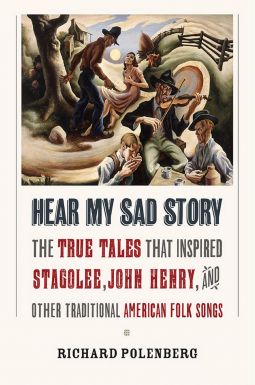
Hear My Sad Story
The True Tales That Inspired "Stagolee," "John Henry," and Other Traditional American Folk Songs
by Richard Polenberg
This title was previously available on NetGalley and is now archived.
Send NetGalley books directly to your Kindle or Kindle app
1
To read on a Kindle or Kindle app, please add kindle@netgalley.com as an approved email address to receive files in your Amazon account. Click here for step-by-step instructions.
2
Also find your Kindle email address within your Amazon account, and enter it here.
Pub Date Dec 07 2015 | Archive Date Nov 17 2015
Description
Read an excerpt and listen to the songs featured in the book at http://folksonghistory.com/In 2015, Bob Dylan said, "I learned lyrics and how to write them from listening to folk songs. And I played them, and I met other people that played them, back when nobody was doing it. Sang nothing but these folk songs, and they gave me the code for everything that's fair game, that everything belongs to everyone." In Hear My Sad Story, Richard Polenberg describes the historical events that led to the writing of many famous American folk songs that served as touchstones for generations of American musicians, lyricists, and folklorists.Those events, which took place from the early nineteenth to the mid-twentieth centuries, often involved tragic occurrences: murders, sometimes resulting from love affairs gone wrong; desperate acts borne out of poverty and unbearable working conditions; and calamities such as railroad crashes, shipwrecks, and natural disasters. All of Polenberg's accounts of the songs in the book are grounded in historical fact and illuminate the social history of the times. Reading these tales of sorrow, misfortune, and regret puts us in touch with the dark but terribly familiar side of American history.On Christmas 1895 in St. Louis, an African American man named Lee Shelton, whose nickname was "Stack Lee," shot and killed William Lyons in a dispute over seventy-five cents and a hat. Shelton was sent to prison until 1911, committed another murder upon his release, and died in a prison hospital in 1912. Even during his lifetime, songs were being written about Shelton, and eventually 450 versions of his story would be recorded. As the song—you may know Shelton as Stagolee or Stagger Lee—was shared and adapted, the emotions of the time were preserved, but the fact that the songs described real people, real lives, often fell by the wayside. Polenberg returns us to the men and women who, in song, became legends. The lyrics serve as valuable historical sources, providing important information about what had happened, why, and what it all meant. More important, they reflect the character of American life and the pathos elicited by the musical memory of these common and troubled lives.
Advance Praise
"This fascinating book by one of the very best twentieth-century American historians draws on Richard Polenberg's enduring and continuing interest in folk music. Hear My Sad Story provides useful and illuminating background stories for a host of important American songs. Polenberg's good, crisp, readable prose ensures that anyone who likes folk music will enjoy this musical window onto the patterns of the past."—Allan M. Winkler, Miami University of Ohio, author of "To Everything There Is a Season": Pete Seeger and the Power of Song
Available Editions
| EDITION | Other Format |
| ISBN | 9781501700026 |
| PRICE | $26.00 (USD) |
Links
Average rating from 27 members
Featured Reviews
 Reviewer 153322
Reviewer 153322
Like mythology, folks songs contain a kernel of truth that was compelling enough to keep people singing the lives (and deaths) of figures who passed into larger than life infamy and celebrity through popular culture. After a long career in progressive and social history, Polenberg uses material he has collected over five decades, including interviews with singers who died in the 1960s and lived through some of the events recounted. From the Streets of Laredo to Stagger Lee, this was the living media informing people about the usually oppressive workings of the legal system, conflict (economic, religious, ethnic, personal) and what caught public imagination (as defiance or a cautionary tale.)
Telling a story in song is one of our oldest human traditions. For hundreds of years people have sung ballads that told stories about murders, outlaws, romances, wars, tragedies, and hardships. During four visits between 1916 and 1918 British musicologist Cecil Sharp collected over 1500 American songs in the southern Appalachians.
At the same time Sharp collected old ballads new ones were being created as a response to events of the time. These new songs included responses to modern calamities involving railroad accidents, shipwrecks, and the treatment of workers and prisoners.
Hear My Sad Story: The True Tales that Inspired "Stagolee," "John Henry," and Other Traditional American Folk Songs by Richard Polenberg explores American ballads based on historical people and events, explaining the events and persons who inspired them, and covering their first known performances, recordings, and publication.
The songs in their categories include:
St Louis (St. Louis Blues, Stagolee, Frankie and Johnny, Duncan and Brady)
Lying Cold on the Ground (Omi Wise, Ballad of Frankie Silver, Tom Dooley, Poor Ellen Smith, Pearl Bryan, Delia's Gone)
Bold Highwaymen and Outlaws (Cole younger, Jesse James, John Hardy, Railroad Bill, Betty and Dupree)
Railroads (John Henry, Engine 143, Casey Jones, Wreck of the Old 97)
Workers (Cotton Mill Blues, Chain Gang Blues, Only a Miner, House of the Rising Sun)
Disasters (The Titanic, The Boll Weevil)
Martyrs (Joe Hill, Sacco and Vanzetti)
Persons interested in folk music and its performers, American history, or music recordings will find this book informative and interesting.
Here is a summary of the history of one song included in the book.
Tom Dooley as recorded by the Kingston Trio was all over the radio when I was a girl, selling over a million copies in a few months. It won the Grammy for Best Country and Western Recording. Everyone knew the words.
Tom Dooley was first recorded in 1929 with these words:
"Tom Dooley"
As recorded by Grayson & Whitter (1929)
(CHORUS)
Hang your head, Tom Dooley,
Hang your head and cry;
Killed poor Laura Foster,
You know you're bound to die.
You took her on the hillside,
As God almighty knows;
You took her on the hillside,
And there you hid her clothes.
You took her by the roadside,
Where you begged to be excused;
You took her by the roadside,
Where there you hid her shoes.
Took her on the hillside,
To make her your wife;
Took her on the hillside Where there you took her life. (CHO.)
Take down my old violin,
Play it all you please;
This time tomorrow,
It'll be no use to me. (CHO.)
I dug a grave four feet long,
I dug it three feet deep;
Throwed the cold clay over her,
And tromped it with my feet. (CHO.)
This world and one more,
Then where you reckon I'll be?
Hadn't a-been for Grayson,
I'd a-been in Tennessee. (CHO.)
How many of us know that Tom Dooley was a real person, Thomas Caleb Dula, a handsome lady killer and Confederate soldier? After bedding two cousins, Ann (an old flame, now married) and Laura Foster, Tom discovered he had syphilis. So did Ann. But Tom blamed the disease on Laura. Ann blamed Tom. Tom paid Laura several visits. Then Laura was found missing. Laura's father believed she was murdered and a warrant for Tom's arrest was issued. Tom had taken off. He turned up at a farm owned by Union veteran Lt. Colonel Grayson who hired him as a field hand. The posse tracked Tom down, but he'd high tailed it again...wearing new boots that hurt his feet.
Tom was cooling his blistered feet when Grayson found him and brought him in. When Laura's body was found, Tom was indicted for murder, found guilty, and sentenced to death by hanging. An appeal was made, improper handling of evidence was proved, and Tom faced a second trial. He was again found guilty and his execution set for May 1, 1868.
Tom spent his jail time trying to cut his chain with a piece of glass--and getting baptized. Neither delayed his execution. On the fatal day a cheerful Tom insisted he was innocent and quipped, "I would have washed my neck if I had known you were using such a nice clean rope." He spoke for an hour to the crowd, maintaining his innocence and accusing witnesses of false testimony. The crowd wasn't buying it. The day before he'd written a note declaring "I am the only person that had any hand to the murder of Laura Foster."
By 1867 a song was being sung about the murder. An early folklore scholar noted the song was sung all over Watauga County. The first recording of Tom Dooley was made in 1929 by Grayson's nephew, Gilliam Banmon Grayson. Folklorists Anne and Frank Warner sang the song and recorded it in 1940. They sang Tom Dooley in every lecture and program. In 1948 Alan Lomax included the song in Folk Song:USA. Then in 1958 the Kingston Trio made the song a national sensation. NPR choose Tom Dooley as one of the most important songs of the twentieth century.
Hear My Sad Story was an enjoyable and informative read.
I received a free ebook from the publisher through NetGalley in exchange for a fair and unbiased review.
 Reviewer 282220
Reviewer 282220
This is a fascinating book about the origins of many American folk songs and ballads that allows you to trace their path to late 20th Century American (and English) folk and rock songs. You cannot have knowledge of the works of Bob Dylan or Fairport Convention, for example, without finding the lineage back to the original songs either by their own take on the song or as the beating heart of new lyrics.
The stories told are sometimes brutal but most have an overwhelming air of sadness and desperation. Excellent.
 Mandy S, Reviewer
Mandy S, Reviewer
May 2015, Hammersmith Apollo, London. Nick Cave finally responds to the crowd's baying requests and plays "Staggerlee" from his 1995 album with the Bad Seeds, Murder Ballads. Transfixed, I stand watching the performance, hanging onto every word and think to myself, there's a great story behind this song.
And there is. In Christmas Eve 1895, "Stack Lee" Shelton entered the Bill Curtis Saloon in St Louis and got into an argument with Billy Lyons. Stack Lee mashed Lyons's hat and Lyons responded by grabbing his white Stetson. Stack Lee drew out his Smith & Wesson .44, Billy drew out his knife and bang! Stack Lee shot Lyons in the belly and left.
This is just one tale in a fantastic new collection of stories by Richard Polenberg. Hear My Sad Story: The True Tales That Inspired "Stagolee," "John Henry," and Other Traditional American Folk Songs. Painstakingly researched and thoroughly entertaining, in this book Polenberg describes the historical events and true stories behind America's most famous folk songs.
While some of these songs have been quite colourful (I'm thinking specifically of Nick Cave's "Staggerlee") that's nothing compared to the truth behind the lore and in many cases truth really is stranger than fiction.
There is the incredible story of Omie Wise, who was drowned in the Deep River, North Carolina in 1807. The murder of this pregnant woman over 200 years ago had quite the impact on the area and now there is a Naomi Falls, a Naomi Bridge and even a large cotton mill named Naomi Falls Manufacturing Company.
What is most notable about the collection is that beneath the entertainment value there is a real indictment of an inequitable and unfair legal system in which African Americans were very often guilty until proven innocent and in many cases they were convicted with the flimsiest of evidence.
Hear My Sad Story by Richard PolenbergIn “Duncan and Brady”, we learn about Harry Duncan who was convicted for the murder of policeman James Brady. Testimony that would have exonerated him was dismissed as hearsay and the weapon used in the murder was not considered relevant for evidence.
Of course, the sad stories that form the basis of our beloved folk songs aren’t always about wrongful convictions. There was no doubt that Frankie Silver killed her abusive husband Charles but no amount of public pressure and understanding of her predicament could prevent her from going to the gallows.
Not all of the stories behind our most famous songs are known. For example, nobody knows who first wrote ”House of the Rising Sun”, the most famous version of which was recorded by The Animals. There was once a Rising Sun Hotel in New Orleans but it burned down in 1822. Given the subject matter, it is more likely that the song stems back to the colourful period where prostitution was legalised in New Orleans at the turn of the 20th century. In the chapter “House of the Rising Sun”, Polenberg tells us about this period which included racial segregation of brothels and even a white pages of sorts to prevent patrons from being swindled.
Of course, some stories are so famous that they permeates ever corner of popular culture. No bandit has had more songs written about him than the outlaw Jesse James and he was of course the subject of the famous Brad Pitt film The Assassination of Jesse James by the Coward Robert Ford. (Incidentally, if you’ve never heard the superb score for the film by Nick Cave and Warren Ellis, you should rush out and do so immediately).
Not only does Polenberg discuss the famous story of Frank and Jesse James, he also tells the less well known story of Cole Younger who so captured the imagination of people that songs about him were released during his own lifetime.
Fascinating and well-researched, Hear My Sad Story provides a backdrop to some of the world’s most famous folk songs. Listening to the old folk tracks on YouTube as I went along, I was fascinated by how many of the songs I recognised and was certainly familiar with some of the names like Frankie and Johnny and of course, Stagolee.
I give Hear My Sad Story: The True Tales That Inspired "Stagolee," "John Henry," and Other Traditional American Folk Songs by Richard Polenberg a superb five out of five stars and would highly recommend to lovers of blues, jazz and folk music and anyone whose imagination has been stimulated by a murder ballad.
 Eustacia T, Reviewer
Eustacia T, Reviewer
This book is about the history of various country songs, but it just made me feel very uneducated (song-wise), when I read it. Out of all the 27 songs, I only recognised one of them - Pearl Bryan, and that's because I heard about it on the podcast Criminal.
According to the prologue, Hear My Sad Story "traces the roots of many of these [folk songs] and describes the circumstances under which each was written and first recorded." So it's like a snapshot of history for each chapter.
The way each chaptered is structured is that each 'song' is told with the lyrics intermingled among the history lesson. It works for a few songs, but since a lot of songs undergo changes, I became confused as to whether the verses shown are the current ones, the original ones, or a mix. Plus, as someone who had no knowledge of most of the songs (which admittedly does not make me the book's ideal reader), I would have preferred to be able to read the lyrics first, at the front, than read the story. But I suspect that for someone with more knowledge than I, or for someone listening to a good audiobook version, this lyrics intermingling with the text would have a pretty good effect.
Most of the stories behind the songs were fascinating, and I managed to read about another side of America that I didn't know. Personally, I would have preferred each section to be much more detailed (it felt a bit rushed at times), but again, it's a personal preference of mine.
I'm digressing here, but I just thought of something. I'd love to read a similar book for Chinese/Japanese/ASEAN songs. Any scholars in that field working on that?
Overall, this was an interesting book. Even though I'm not a folk-music fan, I enjoyed reading about the tragic songs, and how they influenced American culture. I just wish the author had the space to go into more detail for some of the more complicated songs.
Disclaimer: I received a free copy of this book from the publisher via Netgalley in exchange for a free and honest review.
Readers who liked this book also liked:
Jennie Batchelor, Julia Quinn, Natalie Jenner, Charlie Lovett, Talulah Riley, Janet Todd et al
Essays & Collections, Novellas & Short Stories, Women's Fiction
